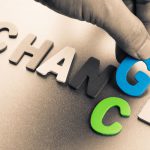“Yesterday I was clever, so I wanted to change the world. Today I am wise, so I am changing myself.” – Rumi
One of the most common failings I run into with leaders is a lack of interest in self-development. Maybe that sounds surprising, but it’s true. I’ve lost track of how many leaders I’ve met who aren’t doing anything to intentionally grow & develop their skills and behaviors. They’ve grown as much as they care to, and they’re planning to ride that all the way to retirement.
It’s possible that there was a time when that worked. Maybe in decades past, when the pace of change wasn’t as rapid as today, people could develop a certain skillset and that skillset would be enough for thirty years. Unfortunately for those people, that world no longer exists.
Look at what you do on a daily or weekly basis. How much time do you spend intentionally trying to improve your own performance? If the answer is ‘Hardly any’, why? Sometimes I think leaders believe they’re supposed to know everything, so if they have to work hard to learn new things that somehow must mean they’re not currently competent. Is that how you feel?
Sometimes I think leaders believe that they got to their position by doing certain things and so if those things were good enough to get to this point, then why change? The answer is, of course, that everything else in the world has changed, so those things that got you to where you are now may no longer be relevant. Being great at something that’s of no value doesn’t result in great performance – only great disappointment.
Don’t let yourself get stale. Take a few moments today and think about what skills or behaviors you’ll need to be good at in your role 3 years from now. Then pick one and get started. You don’t have to do it all in one day, but you need to start today. You can’t wait until you need it to start working on it. Plan ahead. Block off time each week to focus on your own development. Put together a plan and execute it one day at a time.
Just because you’re a leader in an organization doesn’t mean you’ve ‘arrived’. It means your journey is just starting. You need to change yourself into something new. Start now.





Most people “retire” from changing themselves in any significant way once they complete their formal education, relying on “work experience” to prepare them for the future. The trouble with this is that what they used to be good at in the past has little relevance to the future anchored on technologies such as artificial intelligence, autonomous vehicles, virtual reality and the like.
Exactly. Many (most?) of the things we’ll need to know 5 years from now didn’t even exist 10 years ago, never mind before that. How can we possibly expect to provide value to people in 2025 when our skills & behaviors are 2005?